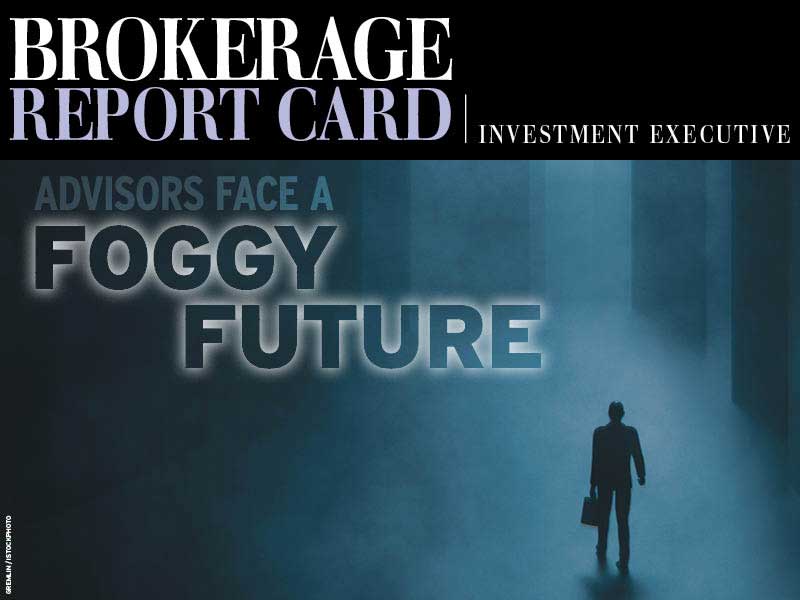
Investment advisors believe associating their practices with a reputable firm is critically important in building trust with clients and prospective clients. But the results of this year’s Brokerage Report Card reveal that the firms’ reputations with these stakeholders is not as it should be.
Case in point: advisors gave the “firm’s reputation with clients and/or prospective clients” category an overall average importance rating of 9.2, tied for the fourth- highest ranking in the Report Card. Yet, the overall performance ranking was 8.5. The difference between these two ratings produced a “satisfaction gap” of 0.7 of a point.
Although advisors have to take some responsibility for communicating the overall value of their firm, they also “need the best possible firm backing them up,” says an advisor in Ontario with Toronto-based Raymond James Ltd.
In the case of Toronto-based ScotiaMcLeod Inc., a public image of instability affects how clients perceive the firm and its advisors, according to ScotiaMcLeod advisors surveyed for this year’s Report Card.
In fact, ScotiaMcLeod’s performance rating dropped the most of any firm in this category, to 7.7 from 8.3 year-over-year. The firm’s advisors said their firm’s branding took a serious hit after 7% of the brokerage arm’s roster of 750 advisors, as well as their assistants, were let go two years ago. The cutbacks were covered widely in the media.
“The firm did some things over the past few years that may have turned some clients off,” says a ScotiaMcLeod advisor in Ontario. “We let a lot of advisors go. I think there’s been a little bit of damage to the firm’s reputation [as a result].”
Although the cutbacks may have had an impact on how both clients and advisors perceive the firm, they were a difficult but necessary decision, says Rob Djurfeldt, managing director and head of ScotiaMcLeod: “We felt that in order to do a better job in evolving our business and adding more complex solutions for clients – which is what they’re looking for – we needed to go through this change.”
Djurfeldt adds that the firm’s team- oriented approach to looking after clients ensures that their needs still are met, regardless of the departures.
Although bad press certainly doesn’t improve a firm’s reputation, no press or public knowledge of the firm also is cause for concern among some advisors.
Advisors with Calgary-based Leede Gable Jones Inc., Raymond James and Montreal-based National Bank Financial Ltd. (NBF) gave their firms lower ratings in the reputation category. Those advisors said their firms are not doing enough to promote their brands in the communities advisors serve.
In the case of Leede, the rating for which declined to 8.6 from 9.1 year-over-year, the firm’s advisors said they’re disappointed that potential clients aren’t aware of the good work the firm is doing.
“Everybody who has heard of us really loves us,” says a Leede advisor in British Columbia. “The problem is we need more people to know about us. We’re the biggest secret in Canada, as we don’t do advertising.”
Similarly, advisors with Raymond James gave their firm a rating of 8.5 in the category, down from 8.7 last year, because they said the firm doesn’t do enough to showcase or promote its value.
“The firm doesn’t spend a lot of money on advertising,” says a Raymond James advisor in B.C. “[The firm] has more money than the big banks and began in the U.S., but still needs name recognition in Canada.”
“[Raymond James] is under the radar,” adds a colleague in Ontario. “It’s a very modest company. Although the modesty is justifiable for a lot of reasons, that doesn’t lead to a lot of exposure.”
Meanwhile, NBF advisors continued to give their firm one of the lowest ratings in the category – at 7.5, down slightly from 7.6 in 2017 – because the bank-owned brokerage still hasn’t done much to build a reputation outside its home province of Quebec.
“[The reputation is] lacking in Ontario,” says an NBF advisor in that province. “Not enough people here know the firm’s story.”
Adds a colleague on the Prairies: “The reputation with existing clients is fine, but most prospects in our community haven’t heard of us.”
Although advisors with Vancouver-based Canaccord Genuity Wealth Management (Canada) gave their firm the lowest rating in the category, at 7.4, that ranking rose from 6.9 in 2017. Advisors said the firm is beginning to shed its reputation as a firm that trades and underwrites small-capitalization stocks and is becoming known more for its wealth-management capabilities.
“[The firm] is just beginning to pick up some credibility now,” says a Canaccord advisor in B.C. “It’s [about] the quality of the representatives and the quality of the products. We’re heading that way.”
Adds a colleague in Ontario: “Because of the fact that we were that bucket shop before, we have to prove our worth in terms of our value proposition to clients.”
Advisors with Toronto-based BMO Nesbitt Burns Inc. also rated their firm higher by half a point in the category, to 8.3 from 7.8 year-over-year. Last year, advisors gave a lower rating because of internal turmoil. This year, they said, clients are largely unaware of that turmoil and still trust the stability of the parent bank’s brand.
“The [firm’s reputation] is pretty good,” says a Nesbitt advisor in Ontario. “[Clients are] oblivious to how bad [the firm] is screwing up internally.”
Adds a colleague in the same province: “[We don’t have] a perfect track record, but no institution with 200 years [of history] will. In general, people think highly of [Bank of Montreal and its Nesbitt brand].”